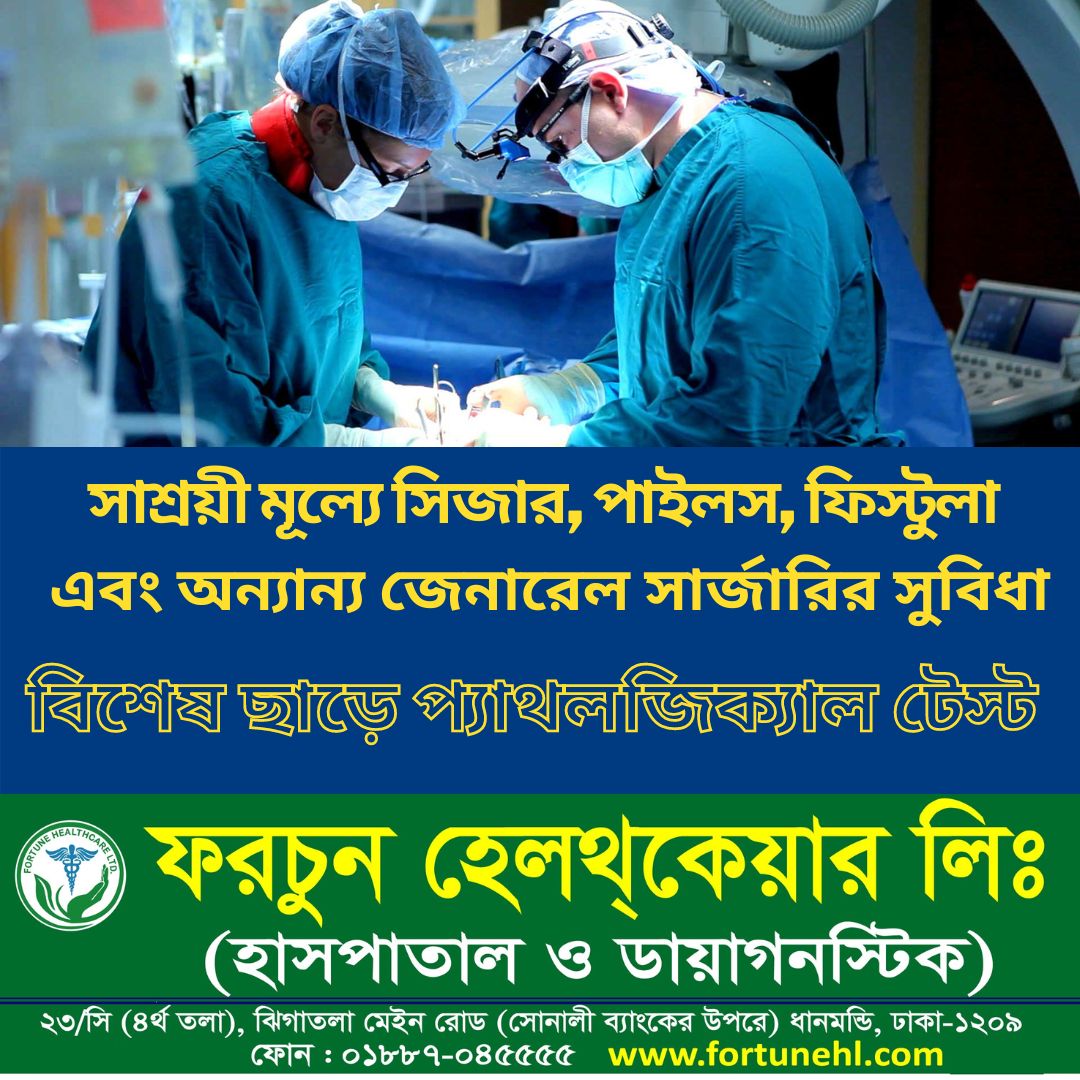A Gastroenterologist of Fortune Healthcare Ltd. Diagnostic and Hospital is a medical professional who specializes in diagnosing and treating conditions related to the digestive system, including the esophagus, stomach, intestines, liver, pancreas, and gallbladder. Some of the services that a gastroenterologist may provide include:
- Diagnosis and treatment of acid reflux disease (GERD)
- Diagnosis and treatment of inflammatory bowel disease (IBD), including Crohn’s disease and ulcerative colitis
- Diagnosis and treatment of irritable bowel syndrome (IBS)
- Diagnosis and treatment of liver diseases, including hepatitis and cirrhosis
- Diagnosis and treatment of pancreatic diseases, including pancreatitis and pancreatic cancer
- Diagnosis and treatment of gallbladder diseases, including gallstones
- Colon cancer screening and surveillance, including colonoscopies and other screening tests
- Diagnosis and treatment of gastrointestinal bleeding
- Management of nutritional and absorption problems, including celiac disease and lactose intolerance
- When you visit Our gastroenterologist, they will take a detailed medical history and perform a physical
- examination to determine the underlying cause of your symptoms. They may also order diagnostic tests such as blood tests, stool tests, imaging studies, and endoscopic procedures to help diagnose your condition. Based on your diagnosis, your gastroenterologist will work with you to develop a personalized treatment plan that may involve medication, dietary changes, or surgery. They may also provide ongoing care and monitoring to help manage your condition and prevent complications.

- Diagnosis: Gastroenterologists are trained to diagnose a wide range of gastrointestinal (GI) conditions, including:
-
Gastroesophageal reflux disease (GERD)
-
Peptic ulcers
-
Gastritis
-
Inflammatory bowel disease (Crohn’s disease and ulcerative colitis)
-
Irritable bowel syndrome (IBS)
-
Celiac disease
-
Gallstones
-
Liver diseases (hepatitis, fatty liver disease, cirrhosis)
-
Pancreatitis
-
Colorectal cancer and other GI cancers
-
- Diagnostic Procedures: Gastroenterologists perform various diagnostic procedures to evaluate and diagnose GI conditions, including:
- Upper endoscopy (esophagogastroduodenoscopy or EGD): Examination of the esophagus, stomach, and duodenum using a flexible scope.
- Colonoscopy: Examination of the colon and rectum to screen for colorectal cancer, diagnose inflammatory bowel disease, and investigate gastrointestinal bleeding and other abnormalities.
- Flexible sigmoidoscopy: Examination of the rectum and sigmoid colon.
- Capsule endoscopy: Swallowing a pill-sized camera to visualize the small intestine.
- Endoscopic ultrasound (EUS): Combining endoscopy with ultrasound imaging to evaluate the GI tract and surrounding organs.
- Treatment: Gastroenterologists provide medical and procedural treatments for GI conditions, including:
- Medications: Prescribing medications to manage symptoms and treat GI disorders, such as proton pump inhibitors for GERD, immunosuppressants for inflammatory bowel disease, and antiviral medications for viral hepatitis.
- Endoscopic therapy: Performing minimally invasive procedures, such as polypectomy, stricture dilation, stent placement, and hemostasis (control of bleeding) using endoscopic techniques.
- Therapeutic ERCP (endoscopic retrograde cholangiopancreatography): Treating bile duct and pancreatic duct disorders, such as removing gallstones, placing stents, and performing sphincterotomy.
- Liver biopsy: Obtaining liver tissue for diagnosis and staging of liver diseases.
- Screening and Prevention: Gastroenterologists play a crucial role in colorectal cancer screening and prevention through colonoscopy and other screening modalities. They also provide recommendations for lifestyle modifications and preventive measures to reduce the risk of GI disorders and cancers.
- Collaboration: Gastroenterologists often collaborate with other specialists, including surgeons, oncologists, radiologists, pathologists, and nutritionists, to provide comprehensive care for patients with complex GI conditions.
- Education and Research: Many gastroenterologists are involved in medical education, teaching medical students, residents, and fellows. They also conduct research to advance the understanding and treatment of gastrointestinal diseases.
Overall, gastroenterologists play a critical role in maintaining gastrointestinal health and diagnosing and treating a wide range of digestive disorders, contributing to improved patient outcomes and quality of life.

